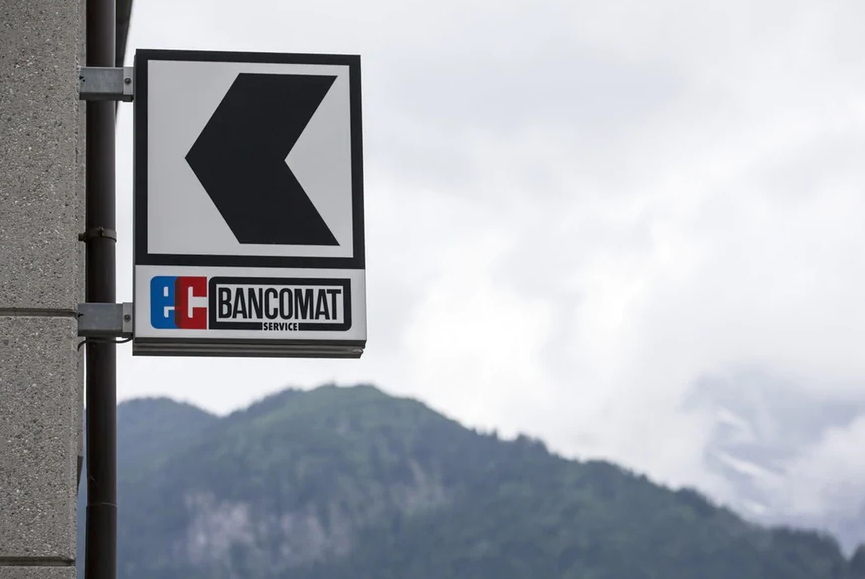Some 27% percent of the population over the age of 15 smokes in Switzerland. © Keystone / Melanie Duchene The Swiss parliament is currently debating tightening restrictions on advertising of tobacco products. This comes after a people’s initiative calls for a radical advertising ban to protect children. Parliament is currently discussing whether to tighten Switzerland’s current tobacco laws, which are some of the most liberal in the world. The draft bill would restrict national advertising campaigns for tobacco products. Despite recent implementation of stricter laws for the industry, such as compulsory smoking areas on train platforms, smoking remains the main cause of all avoidable deaths in Switzerland. Twenty-seven percent of the population over the age of 15
Topics:
Swissinfo considers the following as important: 3) Swiss Markets and News, 3.) Swissinfo Business and Economy, Business, Featured, newsletter
This could be interesting, too:
RIA Team writes The Importance of Emergency Funds in Retirement Planning
Nachrichten Ticker - www.finanzen.ch writes Gesetzesvorschlag in Arizona: Wird Bitcoin bald zur Staatsreserve?
Nachrichten Ticker - www.finanzen.ch writes So bewegen sich Bitcoin & Co. heute
Nachrichten Ticker - www.finanzen.ch writes Aktueller Marktbericht zu Bitcoin & Co.

Some 27% percent of the population over the age of 15 smokes in Switzerland. © Keystone / Melanie Duchene
The Swiss parliament is currently debating tightening restrictions on advertising of tobacco products. This comes after a people’s initiative calls for a radical advertising ban to protect children.
Parliament is currently discussing whether to tighten Switzerland’s current tobacco laws, which are some of the most liberal in the world. The draft bill would restrict national advertising campaigns for tobacco products. Despite recent implementation of stricter laws for the industry, such as compulsory smoking areas on train platforms, smoking remains the main cause of all avoidable deaths in Switzerland. Twenty-seven percent of the population over the age of 15 smokes in Switzerland.
Lawmakers have been mulling a revised Tobacco Products Law since 2016. Advertising is a particularly sensitive topic in Switzerland, as the country is home to the international headquarters of industry giants including Philip Morris International, British American Tobacco and Japan Tobacco.
Switzerland has so far refused to restrict tobacco advertising targeting young people, making it part of a small group of countries that haven’t ratified the WHO Framework Convention on Tobacco Control. The convention is the first binding multilateral treaty in the organisation’s history.
The Swiss government signed this convention 17 years ago, committing at the time to adapt its national laws, which would include measures to protect people against passive smoking and restrictions on tobacco advertising, especially for children.
Until now advertising targeting young people remains unregulated.
Pressure for a stricter law
New momentum for the law came from a 2018 people’s initiative: “Yes to protecting children and young people from tobacco advertising,” submitted with more than 100,000 signatures. The initiative is supported by a broad alliance of health organisations, including doctors, the Swiss Cancer League and prevention organisations like Sucht Schweiz (Addiction Switzerland).
It called for a ban on all advertising for tobacco products targeting children and young people. The government has recommended its rejection. It says that “the initiative would in effect mean a complete advertising ban,” which, it argues, goes too far.
At the same time, the government does want substantial restrictions on tobacco advertising “to better protect young people from the dangers of tobacco”.
The national government has in place of the initiative recommended a tightening of the current Tobacco Products Law. The Senate debated this bill back in September 2019 and stricter rules on advertising were proposed, including regulating advertising for e-cigarettes. More than 45% of 16-year-olds consume this new form of tobacco on a weekly basis.
The lower house’s health committee has recommended that the legislators comply with the government’s recommendation and reject the initiative in favour of the bill submitted by the Senate.
The parliamentary committee doesn’t, however, plan to mandate that the tobacco industry report figures for spending on advertising. It also won’t ban tobacco advertising in newspapers or on websites that aren’t exclusively aimed at minors.
This is the first time that the initiative has been discussed in Parliament. But the debate around the regulation of the tobacco industry will not end there. The most likely outcome will be the rejection of the initiative in Parliament.
Several parliamentarians view the proposed tobacco rules as an attack on companies’ commercial freedom and on an individual’s right to choose. Others are of the view that more is needed to protect minors, and argue that advertising for all tobacco products should be banned in free newspapers and on the internet.
The resulting compromise would mean that Switzerland has finally reached the minimum conditions for ratification of the WHO treaty.
Tags: Business,Featured,newsletter








